Toulouse, known as La Ville Rose (The Pink City), is a captivating blend of old-world charm and modern energy nestled in the heart of southern France. Famous for its rosy terracotta buildings that glow in the afternoon sun, this vibrant city offers an unforgettable mix of history, culture, innovation, and laid-back southern flair.
From Romanesque basilicas and bustling markets to riverside strolls and aerospace wonders, Toulouse invites every type of traveler to slow down and explore its unique rhythm. Whether you're drawn by the rich Occitan heritage, the gourmet southwest cuisine, or the scenic beauty of the Garonne River, Toulouse promises more than just a stopover—it offers a complete French experience.
In this comprehensive travel guide, we’ll uncover everything you need to know for an unforgettable trip: landmarks, local food, museums, nature escapes, shopping districts, nightlife, and tips on where to stay. Let Toulouse surprise you, enchant you, and welcome you with open arms.
Introduction to Toulouse
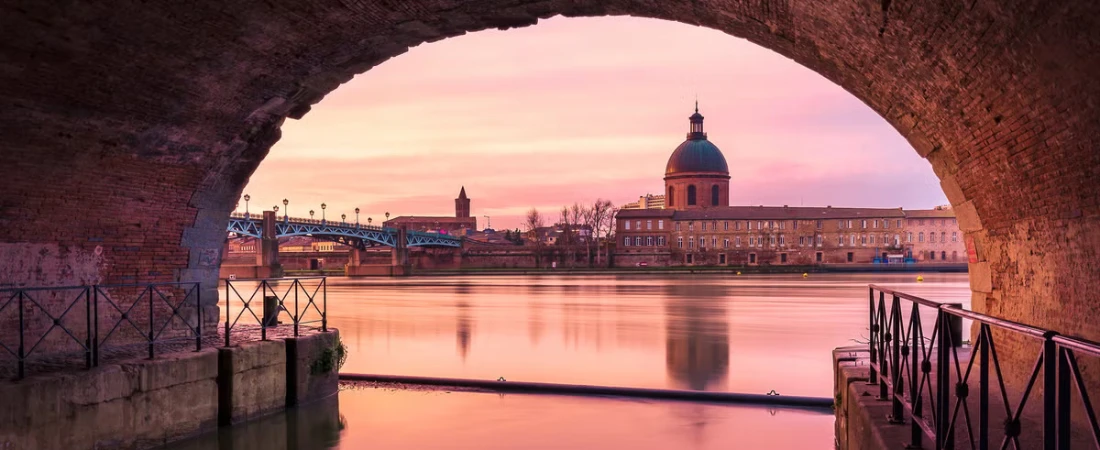
Where is Toulouse?
Toulouse is located in southwestern France, nestled between the Mediterranean Sea and the Atlantic Ocean, close to the Spanish border and the Pyrenees mountains. As the capital of the Occitanie region, it is the fourth-largest city in France, after Paris, Marseille, and Lyon. Thanks to its strategic location, Toulouse serves as a gateway to southern France, with convenient connections to Spain, Andorra, and other French cities.
Travel tip: You can reach Toulouse by high-speed TGV train, domestic flights, or via the Toulouse-Blagnac International Airport, just 20 minutes from the city center.
Why is it Called the Pink City?
Toulouse is famously known as La Ville Rose or “The Pink City” because of the warm, terracotta-colored bricks used in many of its historic buildings. These rose-hued structures glow beautifully under the southern sun, giving the city a unique charm that distinguishes it from the stone cities of northern France.
Walking through the Place du Capitole, exploring ancient churches, and strolling beside the Canal du Midi, you’ll find a rich palette of soft pinks, oranges, and reds all around you.
A Brief History of Toulouse
Toulouse has a rich and complex history that spans more than 2,000 years. Originally founded by the Volcae Tectosages, a Celtic tribe, it later became a Roman settlement known as Tolosa. During the Middle Ages, Toulouse flourished as a center of culture, trade, and power, especially during the Cathar era.
In the 20th century, Toulouse rose to prominence again, this time as a hub for the aerospace industry, home to the headquarters of Airbus and numerous research facilities. This blend of medieval charm and modern innovation makes Toulouse both timeless and progressive.
Toulouse vs. Other French Cities
While cities like Paris or Lyon may draw larger crowds, Toulouse offers a relaxed, authentic, and culturally rich experience. Unlike the often hectic pace of Paris, Toulouse moves at a gentler rhythm. Its streets are lined with students, artists, and musicians, creating a laid-back and creative atmosphere.
Toulouse is also significantly more affordable than major cities like Paris or Nice, making it a great choice for travelers who want deep cultural immersion without breaking the bank.
Occitan Culture in Modern Toulouse
Toulouse is the unofficial capital of Occitania, a historical region with its own language, music, and traditions. Today, you’ll still see bilingual street signs in French and Occitan, and locals take great pride in their heritage.
From Occitan flags waving during festivals to street musicians playing traditional instruments, this cultural identity is very much alive. Visitors can explore this legacy through museums, folk performances, and regional cuisine that reflects a mix of French and Catalan flavors.
Who Should Visit Toulouse?
Toulouse is a versatile destination perfect for:
- History buffs: Roman ruins, medieval monasteries, and UNESCO sites
- Food lovers: Local specialties like cassoulet, foie gras, and Toulouse sausage
- Science geeks: The Cité de l’Espace and Aeroscopia Museum
- Couples: Romantic pink streets and riverside dining
- Families: Parks, interactive museums, and outdoor spaces
- Students and budget travelers: Lively nightlife, hostels, and affordable cafés
Whether you’re on a short stopover or a week-long holiday, Toulouse offers something for everyone.
How Many Days to Stay?
Ideally, you should spend 3 to 5 days in Toulouse to experience the city at a comfortable pace. Here’s a suggested breakdown:
- 1 Day: Old town, Capitole, Basilica of Saint-Sernin
- 2–3 Days: Add museums, Canal du Midi, local food tours
- 4–5 Days: Take a day trip to Carcassonne, Albi, or the Pyrenees
You can also use Toulouse as a base to explore southwestern France, thanks to its strong transport links.
Language and Local Customs
While French is the official language, many people in tourism speak basic English, especially in hotels and restaurants. That said, using a few French phrases like “Bonjour” (Hello) and “Merci” (Thank you) goes a long way in gaining local appreciation.
Customs to Keep in Mind:
- Greet with a smile and eye contact
- Tipping isn’t required but is appreciated
- Shops often close midday for lunch (1-3 p.m.)
- Sunday is a rest day – many places are closed
Fun Facts About Toulouse
- Toulouse has over 160 bridges spanning its rivers and canals.
- It is the European capital of aeronautics and space, hosting Airbus HQ.
- The city has its own football team (Toulouse FC) and rugby culture.
- Toulouse is twinned with cities like Atlanta (USA), Bologna (Italy), and Kiev (Ukraine).
- It is home to France’s largest student population outside Paris.
These quirky features give Toulouse a personality that feels more alive and personal than many tourist-heavy cities.
Quick Overview of Major Attractions
Here’s a teaser of what’s to come in the next sections of this Toulouse travel guide:
- Historic landmarks: Capitole, Saint-Sernin, Pont Neuf
- Unique museums: Cité de l’Espace, Les Abattoirs, Natural History
- Local food: Cassoulet, violets, Toulouse sausage
- Shopping: Rue d’Alsace-Lorraine, flower shops, artisan boutiques
- Outdoor fun: Garonne River, Canal du Midi, nearby mountains
- Nightlife: Jazz clubs, student bars, riverside cafés
Top Landmarks and Sights in Toulouse
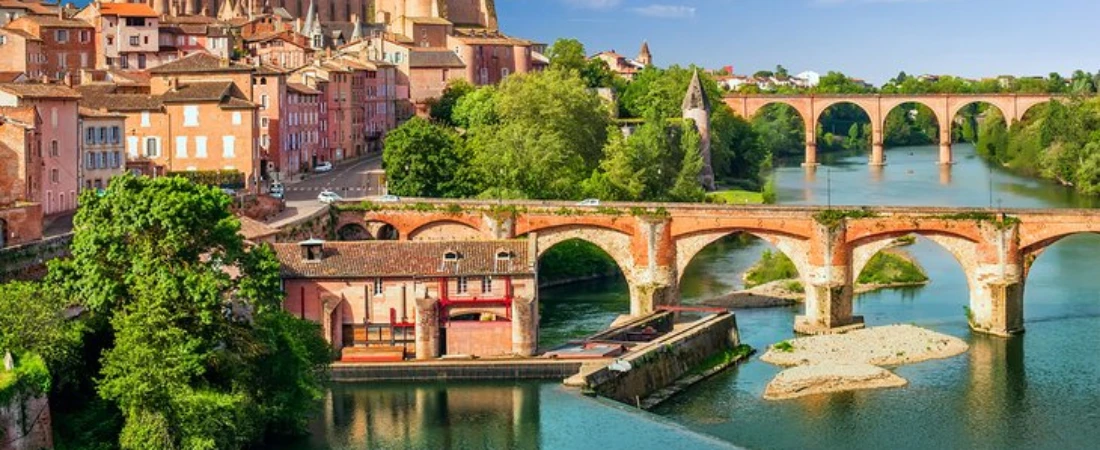
Toulouse is a city where history, culture, and innovation blend seamlessly, offering a wide range of architectural and historical landmarks. From Romanesque basilicas to futuristic space museums, this section of the Toulouse travel guide covers the city’s 10 most iconic and worthwhile sites to visit.
Capitole de Toulouse
The Capitole is the beating heart of Toulouse, both historically and geographically. This neoclassical masterpiece houses the city hall and the Théâtre du Capitole. Its monumental façade stretches across the Place du Capitole, a grand square lined with cafés, restaurants, and shops. Inside, you can explore ornate ceremonial rooms decorated with 19th-century frescoes and sculptures.
The Capitole is more than a political building—it is a cultural symbol. It frequently hosts concerts, art exhibitions, and events, and is often the starting point for exploring the historic city center.
Basilica of Saint-Sernin
A UNESCO World Heritage Site, the Basilica of Saint-Sernin is one of the largest remaining Romanesque buildings in Europe. Built between the 11th and 13th centuries, the basilica features a soaring octagonal bell tower and houses important relics of saints and martyrs.
Pilgrims on the route to Santiago de Compostela often stop here. The stone carvings, relic chapels, and peaceful ambiance make it a must-see for history enthusiasts and religious travelers alike.
Cité de l’Espace
Toulouse is the aerospace capital of Europe, and the Cité de l’Espace reflects that legacy. This massive science park and museum celebrates space exploration through interactive exhibits, full-scale models of rockets and satellites, and a state-of-the-art planetarium.
Visitors can step inside a real space capsule, see a replica of the Ariane 5 rocket, and learn about astronauts’ lives aboard the International Space Station. It is ideal for families, students, and anyone curious about science and technology.
Canal du Midi
A tranquil escape from the bustling city center, the Canal du Midi offers peaceful walks and bike rides under tree-lined paths. Completed in the 17th century, it connects the Garonne River to the Mediterranean Sea and is a UNESCO World Heritage Site.
Locals and tourists alike enjoy picnicking along the canal or renting boats for a short cruise. In autumn, the canal becomes especially scenic as the leaves turn vibrant shades of red and gold.
Pont Neuf and the Garonne River
Despite its name, which means "New Bridge," the Pont Neuf is the oldest bridge in Toulouse, dating back to the 16th century. It spans the Garonne River, offering one of the most photogenic views of the city, especially at sunset.
The surrounding quays, particularly La Daurade, are popular for evening strolls, music festivals, and open-air gatherings. Many boat tours also begin at this point, offering a different perspective on Toulouse’s riverfront charm.
Couvent des Jacobins
The Couvent des Jacobins is a gothic monastery built in the 13th century and known for its unique architectural style. Its palm-tree-shaped columns and serene cloister attract architecture lovers and those seeking a moment of calm.
The convent also houses the relics of Saint Thomas Aquinas and frequently hosts cultural events, including classical concerts and seasonal art exhibitions. It provides a window into the religious and philosophical history of southern France.
Hôtel d’Assézat
An exquisite Renaissance-era mansion, the Hôtel d’Assézat now houses the Fondation Bemberg, an art collection that includes paintings, sculptures, and decorative objects. The building itself is a highlight, with intricate stonework, arched galleries, and an elegant courtyard.
The museum’s collection ranges from Renaissance masters to 19th-century French painters, making it a rewarding visit for art enthusiasts and architecture lovers alike.
Musée Saint-Raymond
Located near the Basilica of Saint-Sernin, the Musée Saint-Raymond is an archaeological museum housed in a former college from the 16th century. Its exhibitions focus on Roman and early Christian Toulouse, showcasing statues, sarcophagi, coins, and everyday items from antiquity.
One of the highlights is the collection of Roman busts found in the nearby Villa Chiragan. This museum gives a deeper understanding of Toulouse’s long history, dating back to its days as a Roman city.
Jardin Japonais (Japanese Garden)
For a tranquil break from sightseeing, visit the Jardin Japonais, located in the Compans-Caffarelli park. Inspired by Kyoto gardens, this peaceful space features a koi pond, red bridges, bonsai trees, and carefully arranged rocks and sand.
The garden is ideal for relaxation, photography, and quiet reflection. It provides a contrast to the surrounding urban landscape and reflects Toulouse’s cultural openness.
Best Scenic Viewpoints
Toulouse offers several places where visitors can enjoy panoramic views of the city:
- Terraces at the Galeries Lafayette offer rooftop views of Place du Capitole.
- Pech-David Hill, a bit farther out, provides sweeping vistas of the Garonne and the city skyline.
- The roof of the Basilica of Saint-Sernin (when accessible) gives unique angles of the city’s red-tiled roofs and towers.
These viewpoints are ideal for capturing the essence of the Pink City in photographs and experiencing the beauty of its terracotta glow from above.
Local Food and Culinary Delights in Toulouse
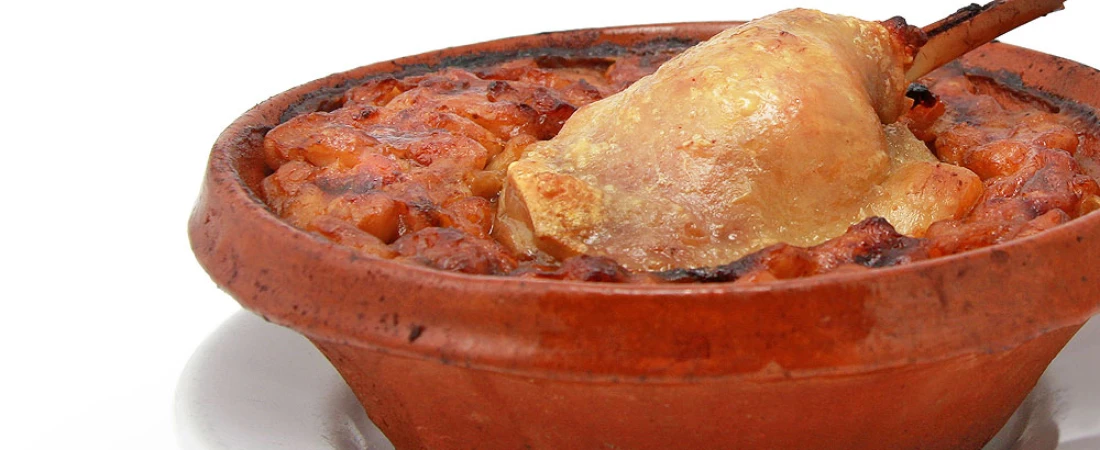
Toulouse’s cuisine is a celebration of tradition, comfort, and bold flavors. Deeply influenced by the Occitan and Gascon regions, the city's food culture emphasizes slow cooking, local meats, seasonal vegetables, and an unwavering dedication to quality ingredients. Whether you’re dining in a rustic tavern or an elegant bistro, every dish tells a story of the region.
What is Cassoulet?
Cassoulet is Toulouse’s most iconic dish—a rich, slow-cooked white bean stew with duck confit, pork, and Toulouse sausage. Named after the cassole, the traditional earthenware pot it’s cooked in, cassoulet is more than a meal; it’s a deeply rooted culinary tradition.
This hearty dish is best enjoyed during the cooler months, accompanied by a glass of full-bodied red wine from nearby Gaillac or Fronton.
Toulouse Sausage: How and Where to Eat It
The famous Saucisse de Toulouse is a coarse-ground pork sausage seasoned simply with salt and pepper. It’s typically grilled, stewed in cassoulet, or served with lentils or potatoes.
You can find it in local markets, traditional bistros, and butcher shops. The sausage’s natural casing and simple spice mix highlight the quality of the meat, making it a favorite among locals and visitors alike.
Foie Gras: Local Delicacy or Controversy?
Foie gras, made from duck or goose liver, is a luxury delicacy with deep roots in southwestern France. In Toulouse, you’ll find it in many forms: pan-seared, pâté, mousse, or part of a gourmet tasting menu.
While some question the ethics of its production, it remains a key part of the culinary identity here. If you choose to try it, look for producers who follow humane practices and support regional agriculture.
Where to Try Violet Candies and Sweets
Toulouse is known as the City of Violets, and this flower flavors a wide array of confections and delicacies. Look out for:
- Candied violet petals
- Violet liqueur
- Violet honey
- Violet chocolate truffles
These products are popular in local pâtisseries and specialty shops, and they also make excellent edible souvenirs. The delicate floral flavor is unlike anything you’ll find elsewhere in France.
Toulouse Markets: Victor Hugo and Carmes
If you want to taste Toulouse like a local, visit its bustling food markets. The most famous is Marché Victor Hugo, located in a covered building near the Capitole. Here, you’ll find fresh cheese, charcuterie, bread, seafood, and wine. Head upstairs for gourmet restaurants serving dishes made from the very produce sold downstairs.
Another favorite is Marché des Carmes, a smaller and slightly more upscale market with artisanal stalls and a more intimate vibe.
Wine and Cheese Pairings in Toulouse
Southwestern France is home to under-the-radar wine regions like Fronton, Gaillac, and Madiran. Pair these with local cheeses such as:
- Rocamadour: a soft goat cheese
- Tomme de Pyrénées: firm and nutty
- Bleu des Causses: a milder blue cheese
Many wine bars in Toulouse offer guided tastings or platters where you can discover regional pairings without needing to travel far.
Top 5 Bakeries for Pastries
Toulouse’s boulangeries are not to be missed. For fresh croissants, tarts, and artisan breads, try these beloved bakeries:
- Pâtisserie Conté: known for fruit tarts and classic mille-feuille
- Maison Pillon: famous for chocolates and macarons
- Boulangerie Cyprien: loved for its rustic sourdough loaves
- Sandyan: high-end pastries with modern presentation
- Les Jardins de l’Opéra: a patisserie inside a gourmet restaurant
Whether you're starting your day or grabbing an afternoon snack, these bakeries are a delicious part of the Toulouse experience.
Budget Eats: Student Favorites
Thanks to its large student population, Toulouse has a great selection of budget-friendly eats. Look for:
- Sandwich shops near the university
- Pizza slices and paninis around Jean Jaurès and Saint-Michel
- Ethnic street food, including North African, Vietnamese, and Lebanese
- Crêperies offering sweet and savory options under 10 euros
Quick, affordable, and satisfying—these spots are ideal for travelers watching their budget.
Vegan and Halal Options
While traditional Toulouse cuisine is meat-heavy, the city has adapted to changing dietary preferences. For vegan travelers, there are plant-based cafés offering soups, salads, and dairy-free desserts.
For halal food, neighborhoods like Arnaud-Bernard and Saint-Cyprien offer Middle Eastern, Turkish, and North African eateries. Many of these restaurants are family-owned and known for generous portions and affordable pricing.
Cooking Classes and Food Tours
One of the best ways to connect with Toulouse’s culinary culture is by taking a cooking class or joining a guided food tour. These experiences may include:
- Learning to make cassoulet or French pastries
- Visiting local markets with a chef
- Sampling regional wine and cheese
- Walking food tours with tastings at specialty shops
These hands-on activities offer cultural insight while deepening your appreciation for regional ingredients and techniques.
Culture and Heritage in Toulouse
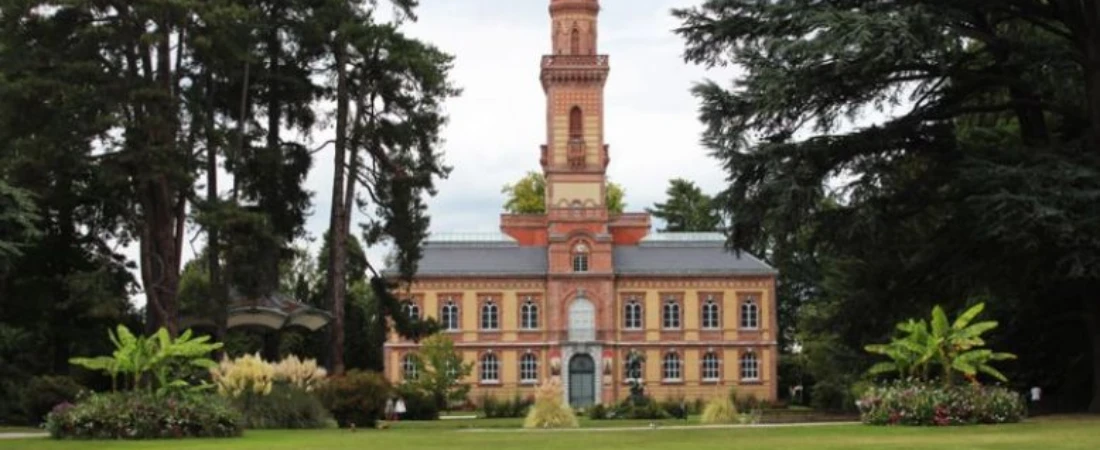
The Roots of the Occitan Language
Toulouse has long been considered the heart of Occitan culture, a tradition that predates modern France. The Occitan language, once spoken throughout southern France, still survives in local festivals, street names, and regional identity. Though French is now dominant, you’ll often see Occitan phrases on signage, and older generations may still use regional expressions.
Preserving this linguistic heritage is important to many locals, and learning a few words like Adieu (hello/goodbye) can show respect for local pride.
Medieval vs. Modern Toulouse
The city’s layout tells the story of its past. In the historic center, narrow medieval streets lead to Renaissance-era townhouses and Romanesque churches. These coexist with wide, modern boulevards, contemporary sculptures, and futuristic research campuses.
This contrast is part of Toulouse’s charm: a walk through the old town might end at a modern art museum or a cutting-edge aerospace research center.
Influence of the Aerospace Industry
Toulouse is the aerospace capital of Europe, home to Airbus Headquarters, major engineering schools, and the Cité de l’Espace. This scientific focus has shaped the city’s identity and economy.
Young engineers and international professionals have brought a cosmopolitan feel to the city. It’s not uncommon to hear a mix of languages in cafés near the university or tech hubs, and science-themed exhibitions and festivals are common.
Local Art and Painters
Toulouse has a long tradition of supporting the arts. In the past, it was home to painters like Jean-Auguste-Dominique Ingres and Antoine Bourdelle. Today, the city nurtures its art scene through galleries, public exhibitions, and outdoor installations.
Les Abattoirs, the modern art museum housed in a converted slaughterhouse, is a leading venue for contemporary art, featuring both French and international artists.
Traditional Music and Dance
Occitan folk music remains a living tradition. Featuring instruments like the boha (bagpipe) and the vielle à roue (hurdy-gurdy), this music is still played at regional fairs and cultural events.
The dances—such as the farandole and bourrée—are taught in community halls and performed during festivals. These gatherings are often open to the public and provide a joyful, participatory way to experience Toulouse’s roots.
Street Art and Modern Galleries
Beyond classical and folk traditions, Toulouse has embraced urban culture and street art. Murals and graffiti art can be found throughout the city, especially in neighborhoods like Arnaud-Bernard and Saint-Cyprien.
Public art initiatives have turned entire buildings into canvases, and guided tours are available for those interested in Toulouse’s visual storytelling through street expression. Galleries like Espace Écureuil and Galerie Chappe support emerging local artists.
Literature and Poetry in Toulouse
Toulouse has a long literary tradition, dating back to the Consistori del Gay Saber, a medieval academy that encouraged poetry in the Occitan language. The city has been home to poets, novelists, and philosophers.
Today, bookstores and literary cafés keep that spirit alive. Events like Le Marathon des Mots, a literary festival held each summer, attract authors and readers from across Europe.
Toulouse’s Religious Heritage
Toulouse’s churches and monasteries reflect its deep spiritual past. Beyond the Basilica of Saint-Sernin, the Jacobins Monastery, Notre-Dame de la Daurade, and Church of Saint-Pierre des Chartreux each tell a different part of the city’s Christian heritage.
The coexistence of churches, mosques, and temples in modern Toulouse also reflects the city’s growing diversity and openness.
Annual Festivals and Events
Toulouse hosts numerous cultural events year-round. Highlights include:
- Rio Loco Festival: celebrates world music and multiculturalism
- Les Siestes Électroniques: an experimental music festival held in city parks
- Le Printemps de Septembre: contemporary art installations and performances
- Fête de la Violette: honoring the city’s signature flower
- Toulouse d'Été: open-air concerts and performances across the city
These events invite both locals and visitors to take part in the cultural rhythm of the city.
Preserving Heritage in a Modern City
Toulouse has managed to balance its heritage conservation with modern growth. Restoration projects have revitalized historic buildings without displacing communities. Museums partner with local schools to educate students about Occitan culture and city history.
Meanwhile, sustainability efforts, pedestrian zones, and eco-renovations aim to ensure that the city’s identity continues into the future—not just as a relic, but as a vibrant, lived experience.
Museums and Galleries in Toulouse
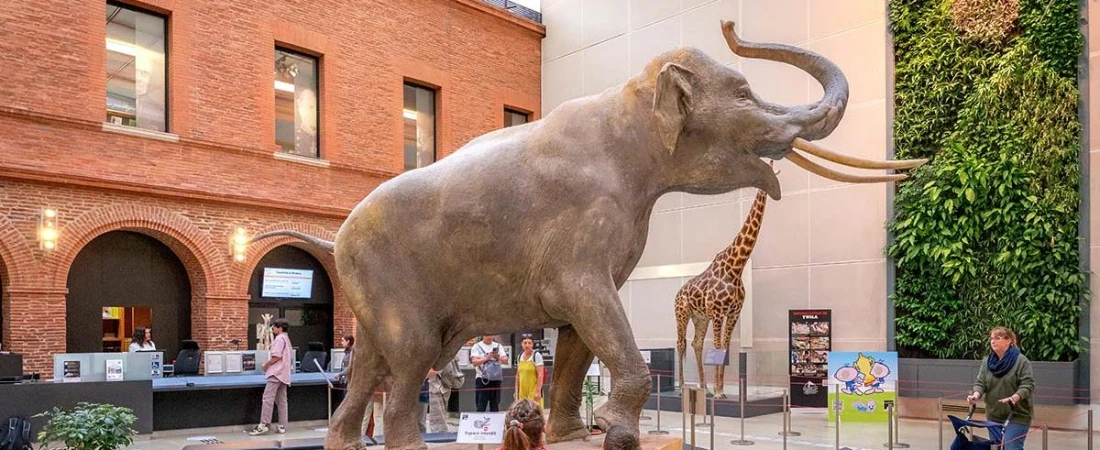
Les Abattoirs – Modern and Contemporary Art
Housed in a former slaughterhouse near the Garonne River, Les Abattoirs is Toulouse’s most important center for modern and contemporary art. The space itself is vast and industrial, providing an atmospheric backdrop for large-scale installations, photography exhibitions, and experimental works.
The permanent collection includes pieces by Pablo Picasso, Jean Dubuffet, and Niki de Saint Phalle. Temporary exhibitions focus on both established and emerging artists, making this museum a living, breathing part of the city’s cultural pulse.
Musée Saint-Raymond – Archaeology and Antiquity
Just beside the Basilica of Saint-Sernin, the Musée Saint-Raymond offers a window into the Roman and early Christian history of Toulouse. Its collections include Roman busts, sarcophagi, coins, and artifacts excavated from the nearby Villa Chiragan.
A highlight is the underground crypt, where tombs and burial chambers provide a haunting but fascinating glimpse into ancient life. The museum's manageable size makes it ideal for a focused, informative visit.
Museum of Natural History
Toulouse’s Muséum de Toulouse is the second-largest natural history museum in France. It’s perfect for families and curious minds, offering interactive displays on geology, paleontology, ecology, and biodiversity.
Exhibits include dinosaur skeletons, stuffed animals, botanical specimens, and immersive dioramas. A highlight is the greenhouse and botanical gardens, which offer a relaxing complement to the indoor exhibitions.
Cité de l’Espace – Aerospace and Astronomy
More than a museum, the Cité de l’Espace is a large-scale science park dedicated to space exploration and astronomy. It’s particularly engaging for families and anyone fascinated by science.
Attractions include a full-scale Ariane 5 rocket, a replica of the Mir space station, and interactive simulators. Visitors can experience what it’s like to walk on the moon, view satellites up close, and explore the solar system in a state-of-the-art planetarium.
Aeroscopia – Aviation Museum
Located near the Airbus assembly lines in Blagnac, Aeroscopia is a celebration of Toulouse’s role in the aviation industry. The museum displays historic and modern aircraft, including Concorde, the Airbus A300, and military planes.
Inside the hangars, visitors can walk through jet cabins, explore cockpits, and learn about the history of flight through interactive exhibits and models. Guided tours often include behind-the-scenes access to nearby Airbus facilities.
Musée des Augustins – Fine Arts
The Musée des Augustins is Toulouse’s primary fine arts museum, set inside a former Augustinian monastery. The building itself is a masterpiece, with Gothic architecture, cloisters, and vaulted ceilings.
Its collection spans medieval sculptures, Renaissance paintings, and 19th-century works by artists such as Delacroix and Ingres. The museum also hosts concerts and temporary exhibitions, blending classical art with modern presentation techniques.
Fondation Bemberg – Private Art Collection
Located inside the elegant Hôtel d’Assézat, the Fondation Bemberg houses a refined private collection of paintings, furniture, and decorative arts. Visitors can view works by masters like Bonnard, Matisse, and Canaletto.
The setting is as impressive as the art itself. The Renaissance architecture, detailed woodwork, and intimate rooms make this gallery feel like a time capsule of aristocratic taste and cultural refinement.
Musée Georges-Labit – Asian and Egyptian Art
This unique museum, set in a Moorish-style villa surrounded by palm trees, specializes in Asian and Egyptian art. Its eclectic collection includes Buddhist statues, Egyptian mummies, ceramics, textiles, and weaponry.
Founded in the late 19th century by explorer Georges Labit, the museum reflects the fascination with Eastern cultures that was common in that era. It's a small but fascinating place that feels far removed from typical Western collections.
EDF Bazacle – Science and Industry on the River
The Bazacle complex sits directly on the Garonne River and combines history, science, and engineering. Originally a medieval mill site, it has been transformed into a hydroelectric facility with interactive exhibits on energy, as well as rotating art exhibitions and a rooftop terrace.
One of the highlights is the fish ladder, allowing visitors to observe migrating species through underwater viewing windows. The Bazacle offers a rare blend of nature, science, and technology in one site.
Art Galleries and Artist Collectives
Beyond formal institutions, Toulouse supports a wide range of independent galleries and artist-run spaces. These include:
- Galerie du Château d’Eau, focused on photography
- Espace Écureuil, known for supporting emerging artists
- Mix’Art Myrys, a collective art space with workshops and performances
- Lieu Commun, an experimental gallery with contemporary installations
These venues showcase the city’s creative edge and provide platforms for local voices in visual art.
Nature and Outdoor Activities in Toulouse
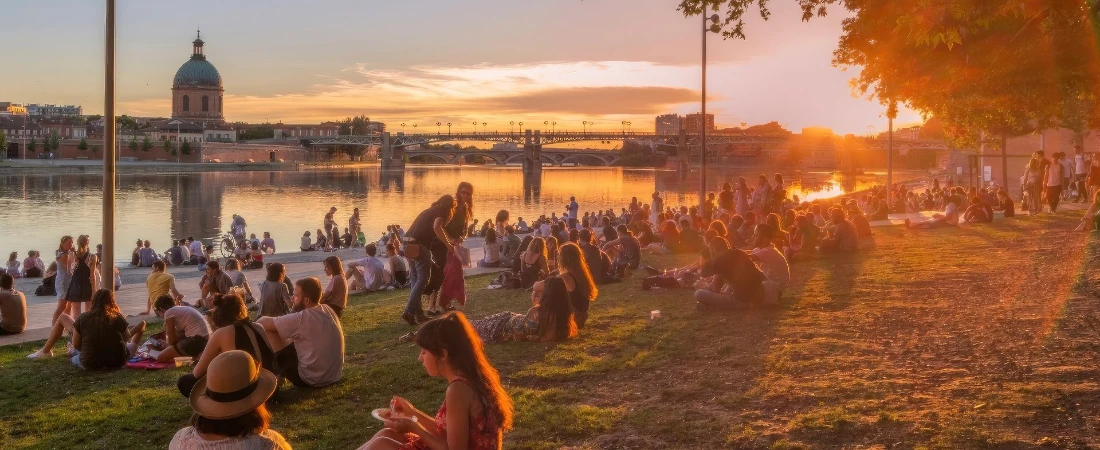
Although Toulouse is a vibrant urban center, it offers an abundance of natural landscapes, open-air activities, and nearby escapes. Whether you're looking for a peaceful riverside walk, a long-distance bike ride, or a refreshing day trip to the Pyrenees, Toulouse is a city where nature is easily accessible.
Walks Along the Garonne River
The Garonne River cuts through the city and provides one of Toulouse’s most scenic walking routes. From the Pont Neuf to the Prairie des Filtres, the riverbanks are lined with cobblestones, benches, and grassy lawns.
Evenings along the Garonne are particularly beautiful, as the setting sun bathes the pink-brick buildings in warm light. Street performers, picnickers, and couples often gather here to relax, adding a social element to the natural scenery.
Biking the Canal du Midi
The Canal du Midi is one of Toulouse’s greatest natural and engineering landmarks. This UNESCO World Heritage Site extends from the Garonne River all the way to the Mediterranean Sea. In Toulouse, the canal path is a popular route for cycling, jogging, or leisurely walks.
Shaded by plane trees and lined with barges and houseboats, the canal offers a peaceful escape from the city’s busier areas. You can rent bikes easily in town and follow the trail for a few hours or make a full-day trip out of it.
Parks and Gardens: Top 5 to Visit
Toulouse is home to several beautiful parks and gardens that provide tranquil green spaces for rest and recreation. Notable favorites include:
- Jardin des Plantes: Botanical gardens with fountains and exotic trees
- Jardin Japonais: A peaceful Kyoto-style retreat with koi ponds and pavilions
- Prairie des Filtres: Riverside lawns perfect for sunbathing and casual sports
- Parc de la Reynerie: A larger, more secluded park with walking paths and a small lake
- Compans-Caffarelli Park: Centrally located with space for picnics and jogging
These parks are ideal for families, solo travelers, and couples alike.
Boat Rides and Canal Cruises
To see Toulouse from a different perspective, consider a boat cruise along the Garonne River or the Canal du Midi. These short excursions typically last between 1–2 hours and offer views of historic bridges, city landmarks, and nature along the waterway.
Some cruises offer themed experiences such as wine tastings or dinner aboard the boat, combining sightseeing with local flavors.
Day Trips to the Pyrenees
The Pyrenees Mountains are just a couple of hours from Toulouse and make for a perfect nature-filled day trip or weekend excursion. Popular destinations include:
- Ax-les-Thermes: Known for thermal baths and hiking trails
- Luchon: A spa town with access to mountain treks and skiing in winter
- Gavarnie: A UNESCO-listed natural amphitheater with stunning waterfalls
Whether you enjoy hiking, skiing, or simply enjoying alpine scenery, the Pyrenees offer a change of pace and altitude.
Wildlife and Birdwatching Areas
For those interested in biodiversity, Toulouse has a few quiet places where wildlife observation is possible:
- Ramier Park: Situated on an island in the Garonne, ideal for spotting birds and small mammals
- Reynerie Lake: A small but peaceful habitat for ducks and water birds
- Peat bogs and wetlands on the outskirts of the city provide protected zones for rare species
Bring binoculars and a field guide if you’re keen on identifying birds or local flora.
Outdoor Yoga and Fitness Zones
Toulouse encourages active outdoor lifestyles with fitness installations, open-air yoga classes, and group exercise events in city parks. Common spots include:
- Jardin Compans-Caffarelli: Hosts weekend yoga sessions
- Prairie des Filtres: Used for tai chi, group workouts, and casual sports
- Canal paths: Popular for running and cycling with scenic views
These areas provide both locals and visitors with opportunities to stay fit while enjoying fresh air and nature.
Camping and Eco-Lodges Nearby
Just outside the city, you'll find eco-lodges, glamping spots, and traditional campgrounds, especially toward the foothills of the Pyrenees or along the Garonne Valley. Options include:
- Riverside tent sites with canoe access
- Eco-friendly wooden cabins in forest settings
- Farm stays that offer outdoor cooking and organic food
These accommodations offer a deeper connection with nature and can serve as peaceful retreats from city life.
Autumn Colors and Seasonal Changes
While Toulouse is beautiful year-round, autumn brings an extra layer of visual charm. The trees along the Canal du Midi turn vibrant shades of yellow, orange, and red, making walks and bike rides especially picturesque.
In spring, city parks bloom with tulips, cherry blossoms, and irises. Summer brings open-air festivals and longer daylight hours. Even winter offers its own charm with crisp walks and foggy river mornings.
Stargazing Spots and Dark Skies
Although Toulouse is a city, you can still enjoy stargazing at select spots with less light pollution. Head to:
- Pech-David Hill: A quiet overlook on the south side of the city
- Cité de l’Espace: Hosts stargazing nights with telescopes and guided talks
- Countryside guesthouses near the Pyrenees, offering completely dark skies
These options provide a peaceful way to connect with the cosmos, whether through science or pure wonder.
Shopping in Toulouse
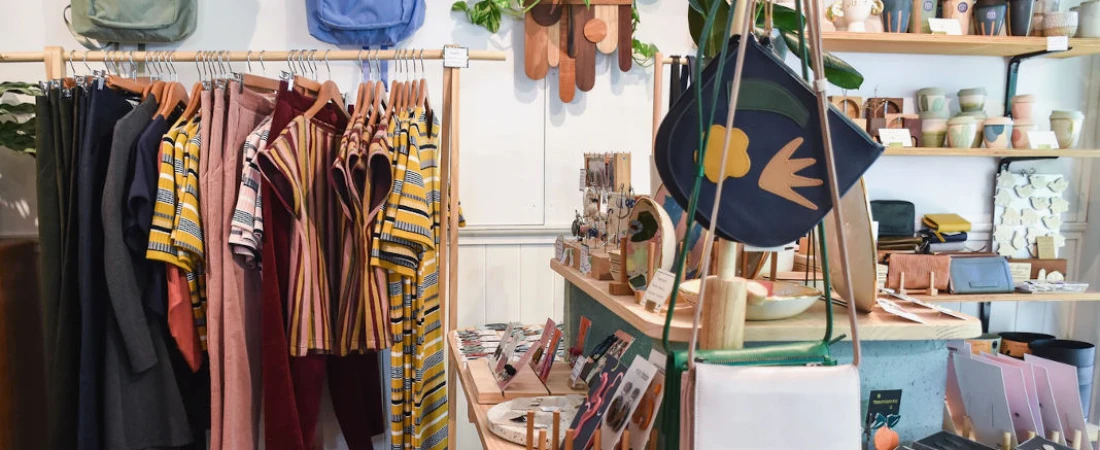
Rue d’Alsace-Lorraine: The Shopping Spine of the City
The heart of Toulouse’s shopping district is Rue d’Alsace-Lorraine, a broad avenue lined with well-known French and international retail brands. Here, you’ll find shops like Galeries Lafayette, Zara, Mango, and Sephora.
This street connects the Capitole area to Jean Jaurès and serves as a central artery for those wanting to explore fashion, cosmetics, shoes, and accessories—all within walking distance.
Local Boutiques in the Old Town
Beyond the major chains, Toulouse shines with independent boutiques tucked into the winding streets of the historic center. Streets like Rue des Arts, Rue Saint-Rome, and Rue Peyrolières are ideal for discovering:
- Artisan leather goods
- Designer-made clothing
- Handmade jewelry
- Vintage shops with rare finds
These small, stylish shops often reflect the creativity and originality of local designers and make for memorable, personal purchases.
Perfumes and Violet Products
Toulouse is known for its violet-scented products, a tradition going back to the 19th century. You can find these floral treasures in specialty boutiques across the city. Popular items include:
- Violet perfumes and eau de toilette
- Scented soaps and hand creams
- Candied violet petals and liqueurs
- Violet-themed candles and sachets
Look for shops that specialize in regional goods or visit one of the city’s maison de violette stores for a curated selection.
Marché Victor Hugo: The Gourmet Market
For culinary shopping, Marché Victor Hugo is unmatched. Located in a covered hall just north of the Capitole, this market offers fresh produce, cheese, meat, fish, pastries, and regional specialties.
You can also buy vacuum-sealed foie gras, Toulouse sausage, and local wines—ideal for gifting or taking home. Upstairs, several restaurants prepare dishes made from ingredients sold in the market, allowing you to taste before you buy.
Flower Shops and Seasonal Markets
Flowers are an important part of Toulouse’s charm, and the city is dotted with quaint florists and flower markets. The main flower market takes place on Place du Capitole several days a week, offering seasonal blooms and plant arrangements.
These are not just for decoration—flowers are often sold for religious offerings, weddings, or traditional celebrations. You’ll also find dried flower bundles and pressed flower products, which make elegant souvenirs.
Artisanal Food Shops and Delis
If you want to bring home the taste of Toulouse, stop by one of the city’s many epiceries fines or gourmet delis. They stock locally made:
- Foie gras
- Cassoulet in glass jars
- Duck confit
- Violet jam and honey
- Handcrafted chocolates
Shops like these usually offer tastings and expert guidance on pairings and preservation, ensuring your purchase travels well.
Bookstores and Literary Souvenirs
Toulouse has a strong literary culture, and its independent bookstores are a great place to shop for French-language novels, art books, and postcards. Many also sell notebooks, pens, and local author collections.
For something more regionally specific, look for books on Occitan history, Toulouse’s architecture, and regional cuisine. Bookshops in areas like Carmes and Saint-Cyprien often carry unique, locally published titles.
Shopping Malls and Department Stores
For a more modern retail experience, Toulouse has several shopping centers worth visiting:
- Centre Commercial Saint-Georges: Centrally located with clothing and accessory shops
- Espace Gramont: A large mall on the outskirts with a cinema and hypermarket
- Galeries Lafayette Toulouse: High-end department store offering fashion, beauty, home goods, and gourmet food
These locations are perfect for a one-stop shopping trip or for escaping the summer heat or rainy afternoons.
Antique Stores and Flea Markets
Toulouse is also a city for collectors. Antique lovers should explore:
- Brocantes in Saint-Aubin or Place Saint-Georges
- Weekend flea markets selling vintage home goods, books, and ceramics
- Specialty shops dealing in old coins, jewelry, and art pieces
These markets are often best in the early morning, and bargaining is common practice. You never know what unique treasure you might come across.
Local Tips for Smart Shopping
- Sales periods in France are strictly regulated. The best deals happen in January–February and June–July.
- Bring your own shopping bag; many stores charge for plastic bags.
- Tax refunds may apply for non-EU residents on large purchases.
- Credit cards are widely accepted, but smaller markets may prefer cash.
- Avoid Sundays: Most shops are closed except for markets or those in tourist-heavy zones.
Nightlife and Entertainment in Toulouse
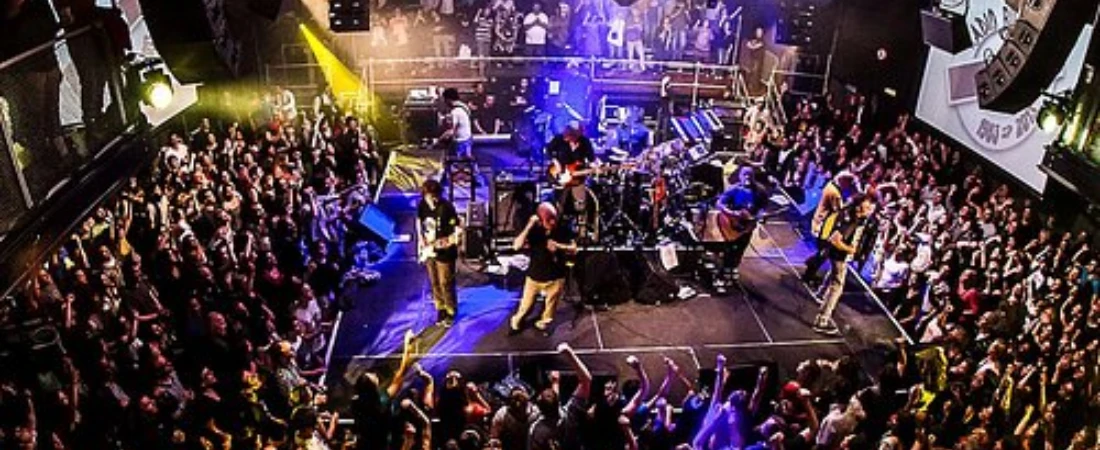
Toulouse transforms at night into a city of music, lights, and energy. Thanks to its large student population and creative spirit, the Pink City offers a diverse nightlife scene that ranges from trendy riverside bars and jazz clubs to open-air theaters and techno parties. Whether you prefer a quiet glass of wine or dancing until sunrise, Toulouse has something to offer every evening adventurer.
Why Toulouse Nights Stand Out
Toulouse’s nightlife is unique because it blends youthful freedom, cultural heritage, and casual elegance. The city's mild climate allows for outdoor gatherings most of the year, and the compact layout means many venues are within walking distance.
It’s a city where locals value social connection, so expect lively atmospheres, welcoming venues, and music echoing through the streets until late.
Popular Nightlife Areas
Some neighborhoods are particularly well-known for their nightlife:
- Place Saint-Pierre: The student zone near the Garonne, packed with bars
- Carmes and Saint-Cyprien: Trendy with a mix of wine bars and cultural venues
- Jean-Jaurès and Capitole: Central, with everything from pubs to lounges
- Compans-Caffarelli: More relaxed, with upscale dining and cocktail spots
These districts come alive after 8 p.m., and each has a distinct personality.
Riverside Bars and Quais de la Daurade
One of the most iconic ways to enjoy an evening in Toulouse is by heading to the Quais de la Daurade, a riverside promenade along the Garonne. Especially in summer, it becomes a gathering spot for young people, musicians, and food trucks.
Pop-up bars often appear during festivals, and the view of the Pont Neuf lit up at night is unforgettable. It’s a social, open-air way to experience Toulouse as locals do.
Wine Bars and Lounge Spots
Toulouse is in wine country, and its many wine bars highlight the richness of the southwest’s vineyards. You can sample reds from Madiran, whites from Gaillac, or rosés from Fronton, often paired with cheese boards or tapas.
Top wine bars tend to be intimate and ambient. Some also serve as jazz lounges or host poetry nights, creating a space where conversation and culture meet.
Theaters and Performance Venues
For a more artistic night out, Toulouse offers several respected theaters and concert halls. Notable venues include:
- Théâtre du Capitole: Opera and ballet performances
- Théâtre Garonne: Avant-garde plays and international works
- Théâtre de la Cité: Modern and classic French theater
- La Halle aux Grains: Classical music and orchestral concerts
Shows are typically in French, but international performances are also scheduled throughout the year.
Live Music: Jazz, Rock, and Folk
Toulouse has a lively live music scene. Some favorite places to hear talented musicians include:
- Le Taquin: Jazz bar with concerts several nights a week
- Le Metronum: Large venue hosting indie, electro, and pop acts
- Connemara Pub: Irish bar with weekly rock and folk sessions
- La Cave Poésie: Poetic performances with music and spoken word
Whether you're into acoustic guitar, brass ensembles, or electronic sets, you'll find a space for it in Toulouse.
Techno Clubs and DJ Nights
Toulouse’s electronic music scene is strong, especially among students and creatives. Venues known for techno and house music include:
- L’Usine à Musique: Underground music and club nights
- Le Bikini: A large concert and club space with top DJs
- Connexion Live: Multi-genre venue popular for late-night sets
- Downtown Factory: Chic, industrial-style dance club
These spots usually pick up after midnight and go well into the early morning.
Festivals and Cultural Nights
Toulouse hosts many evening festivals that blend performance, food, and community spirit. Key events include:
- Rio Loco: International music festival with riverside parties
- Toulouse d’Été: Summer program with concerts and open-air cinema
- La Nuit des Musées: Museums stay open late with special events
- Printemps de Septembre: Contemporary art meets nightlife
These events often include free performances and attract large crowds.
Late-Night Cafés and Dessert Spots
If you're not into drinking or dancing, Toulouse still caters to you. The city is filled with late-night cafés, crêperies, and ice cream parlors where people gather after shows or movies.
Enjoy a sweet crêpe, a slice of tarte aux pommes, or a scoop of violet ice cream in the soft night air. It’s a calm and cozy way to end your day.
Safety and Night Transport Tips
Toulouse is generally safe, but like any city, it's best to:
- Stick to well-lit, populated areas
- Keep personal belongings secure
- Use official taxis or ride-hailing apps after midnight
- Check metro and bus hours; night buses operate on weekends
Many nightlife zones are pedestrian-friendly, and locals are typically friendly and helpful if you need directions.
Where to Stay in Toulouse
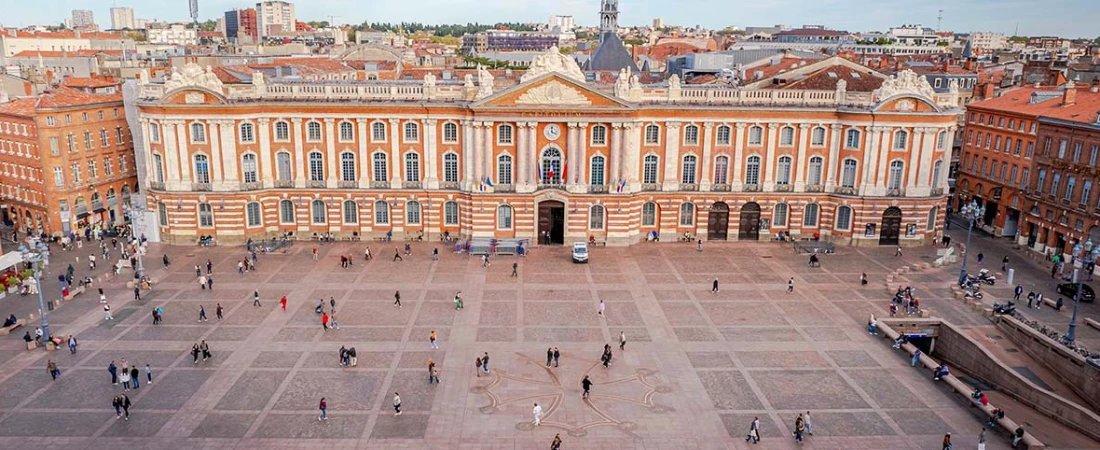
Best Areas to Stay in Toulouse
Each district in Toulouse offers a distinct atmosphere. Here's a breakdown of popular neighborhoods:
- Capitole: Historic and central, ideal for first-time visitors and walkers
- Carmes: Trendy and romantic, perfect for couples and food lovers
- Saint-Cyprien: Artistic and local, with a laid-back vibe
- Jean-Jaurès: Close to transport and nightlife, great for students and younger travelers
- Compans-Caffarelli: Quieter, business-friendly area with green spaces
- Matabiau Station Area: Convenient for transport, budget stays, and short visits
Each area offers a variety of accommodations, so you can match your comfort level and price range.
Luxury Hotels in Toulouse
For travelers seeking refined service, spacious rooms, and elegant surroundings, Toulouse has several top-tier options. These hotels often feature historic architecture, gourmet restaurants, and concierge services.
Top luxury features may include:
- Suites with city views
- On-site spas and wellness areas
- In-room dining and Michelin-starred cuisine
- Central locations within walking distance of major attractions
Staying in the historic center adds a touch of romance and convenience to your experience.
Boutique Hotels and Guesthouses
Boutique hotels offer personalized service and a unique design often inspired by the city’s pink-brick charm. They’re usually smaller than chain hotels, located in converted mansions or heritage buildings.
These stays provide:
- Local ambiance and artistic interiors
- Homemade breakfasts
- Quiet streets with character
- Hosts who can provide personalized recommendations
Ideal for travelers who want an intimate, authentic experience without sacrificing comfort.
Budget-Friendly Hostels and Hotels
Toulouse is a university city, so there are plenty of affordable lodging options. Hostels and budget hotels are great for students, solo travelers, and backpackers.
Common features include:
- Shared or private rooms
- Communal kitchens and lounges
- Lockers and laundry services
- Social activities for guests
Even with a lower budget, it’s possible to find clean, safe, and centrally located accommodations—especially near Jean-Jaurès or Matabiau Station.
Apartment Rentals and Aparthotels
For families or those staying longer, apartment rentals and aparthotels are excellent options. These offer flexibility, kitchen facilities, and more space than hotel rooms.
You can find apartments in:
- Historic buildings with original details
- Modern residences in quieter neighborhoods
- Areas with great access to shops, parks, and markets
Many are professionally managed, offering hotel-like services with the comfort of home.
Romantic Stays for Couples
Couples often look for stays with ambiance and privacy, whether tucked away in the Carmes district or overlooking the Garonne River.
Romantic accommodations often feature:
- Canopy beds or balconies
- Spa baths or wellness areas
- Candlelit dining in-house or nearby
- Proximity to gardens, museums, and fine restaurants
Boutique hotels or charming guesthouses often provide that special atmosphere for honeymoons or anniversary getaways.
Family-Friendly Hotels and Facilities
Traveling with children? Toulouse has many family-friendly accommodations with amenities like:
- Family suites or interconnected rooms
- On-site playgrounds or nearby parks
- Breakfast buffets with kid-friendly options
- Proximity to attractions like the Natural History Museum or Cité de l’Espace
Staying slightly outside the busy center may offer more space and quieter surroundings while still being close to transit.
Eco-Friendly and Sustainable Stays
Eco-conscious travelers can opt for sustainable hotels and lodgings that emphasize green practices. Look for accommodations with:
- Solar energy or energy-efficient systems
- Organic breakfasts sourced locally
- Water-saving fixtures and recycling programs
- Green certification from EU or French sustainability programs
These options are increasingly popular and often align with Toulouse’s progressive and eco-aware spirit.
Airport Hotels and Transit Convenience
If you’re catching an early flight or just passing through, Blagnac Airport and the Matabiau Train Station areas have convenient hotels. These often include:
- 24-hour reception
- Airport shuttles
- Simple, comfortable rooms for rest
- Access to public transport into the city center
They’re functional, well-equipped, and ideal for short layovers or early departures.
Tips for Booking Accommodation
- Book early during festival seasons like summer or December holidays
- Use trusted platforms with verified reviews for rentals
- Check cancellation policies—many offer free cancellation up to 24–48 hours before check-in
- Consider public transport access, especially for longer stays
- Always compare prices between hotel websites and booking platforms for deals
If you're visiting on a tight schedule, staying in or near Capitole or Jean-Jaurès gives you quick access to nearly everything.
Why Visit Toulouse
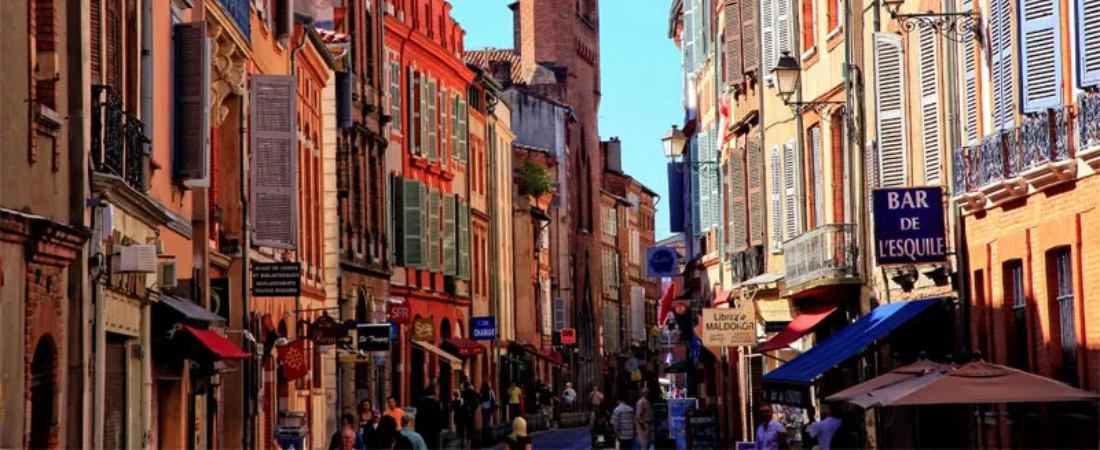
A City of Living History
Toulouse is not a museum; it’s a living canvas of its own past. Its streets hold echoes of Roman roads, medieval churches, and Renaissance mansions—yet it remains youthful and dynamic.
You can admire thousand-year-old stonework in the morning and enjoy modern architecture or interactive exhibits in the afternoon. The fusion of eras makes every corner of the city feel authentic and alive.
The Charm of Pink Brick
No other city in France glows quite like Toulouse. Its distinctive terracotta bricks give buildings a warm, rosy hue, especially striking at sunrise and sunset. This architectural signature sets the city apart and gives it a softness and warmth unlike anywhere else.
Walk through Place du Capitole, along Rue du Taur, or beside the Garonne in golden light—these are the moments that define the “Pink City” experience.
A Leader in Science and Innovation
Toulouse is Europe’s aerospace capital, home to Airbus, cutting-edge engineering schools, and space exploration institutions. Visitors can tour Cité de l’Espace or Aeroscopia Museum, giving insight into the city’s contribution to aviation and technology.
This innovative side complements the city’s historical charm, proving that Toulouse isn't just about looking back—it's also about looking forward.
Authentic Southwestern Cuisine
Toulouse offers some of the best food in France, with deep-rooted culinary traditions. Must-try dishes include:
- Cassoulet: A rich, slow-cooked stew
- Foie gras: Often homemade and served with fig or apple
- Toulouse sausage: Local and flavorful
- Violet treats: Found in candies, syrups, perfumes, and jams
Markets like Marché Victor Hugo and small bistros across the city invite you to taste the region, not just visit it.
Occitan Culture and Southern Identity
Toulouse is the heart of Occitan heritage, with its own language, music, dances, and symbols. While French is spoken everywhere, Occitan words and regional pride remain visible in festivals, cultural centers, and signage.
This distinct cultural identity gives Toulouse a southern French soul—laid-back, expressive, proud, and welcoming.
A Youthful, Artistic Vibe
Home to over 100,000 university students, Toulouse has a youthful, creative energy that fuels its nightlife, festivals, and alternative art scenes. Music, poetry, photography, and design thrive in galleries, clubs, and public spaces.
From jazz bars to street murals, the city embraces artistic expression, offering endless inspiration for creatives and culture lovers.
A City Built for Walking and Living
Toulouse is compact, flat, and extremely walkable. The historic center is full of narrow lanes, cozy cafés, markets, and green spaces. You can easily explore on foot, by bike, or by riverboat.
The city also promotes sustainable travel with bike paths, public transport, and eco-friendly initiatives—making it both accessible and environmentally conscious.
Nature Within and Beyond the City
With the Garonne River, Canal du Midi, and numerous gardens, Toulouse offers nature at your doorstep. You can picnic by the river, cycle along tree-lined canals, or escape to the nearby Pyrenees mountains in under two hours.
Toulouse combines the advantages of a large city with the feeling of being close to nature—ideal for balance and relaxation.
A City for All Seasons
Toulouse’s mild climate means you can enjoy it year-round:
- Spring: Flowering trees and perfect weather for outdoor dining
- Summer: Festivals, music, and riverside lounging
- Autumn: Golden light and colorful foliage
- Winter: Christmas markets and cozy indoor culture
No matter the season, there’s always something to do, eat, or explore.
A Warm, Welcoming Atmosphere
Perhaps the most defining feature of Toulouse is its human warmth. Locals are known for their friendliness, humor, and openness. The city may be growing and modernizing, but it still feels personal, grounded, and alive with real community spirit.
Toulouse welcomes you not just as a visitor, but as a temporary resident—inviting you to live its rhythm, not just observe it.
Final Thoughts
Toulouse is not a checklist city—it’s a city you feel. It surprises you with its contrasts: old and new, lively and calm, intimate yet grand. It’s a city of conversation, invention, tradition, and slow pleasures.
Whether you’re exploring France for the first time or looking for a new kind of destination, Toulouse rewards the curious traveler with depth, warmth, and beauty.


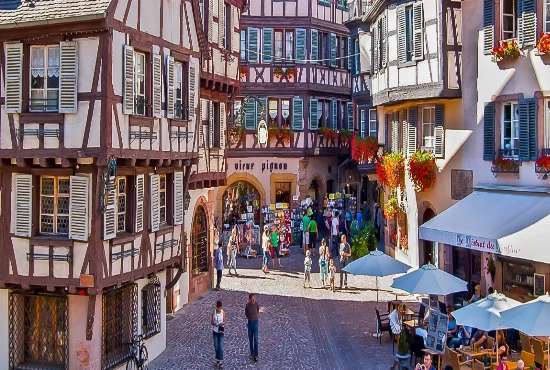
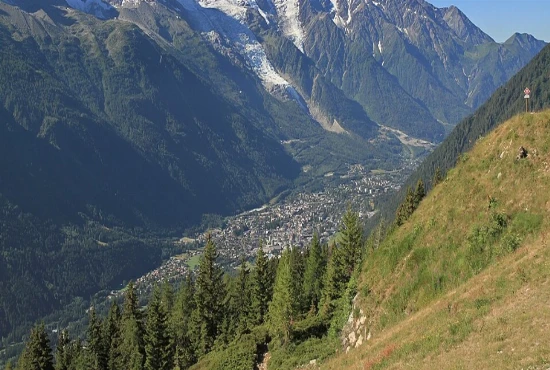
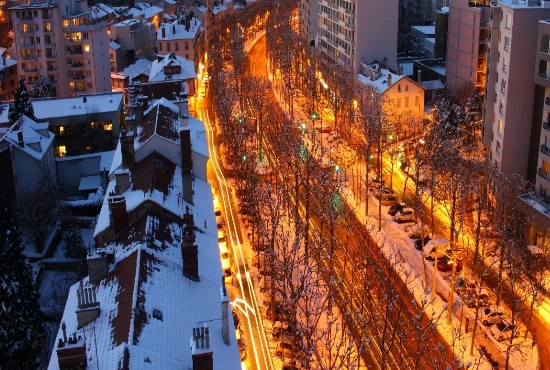

Leave a Reply